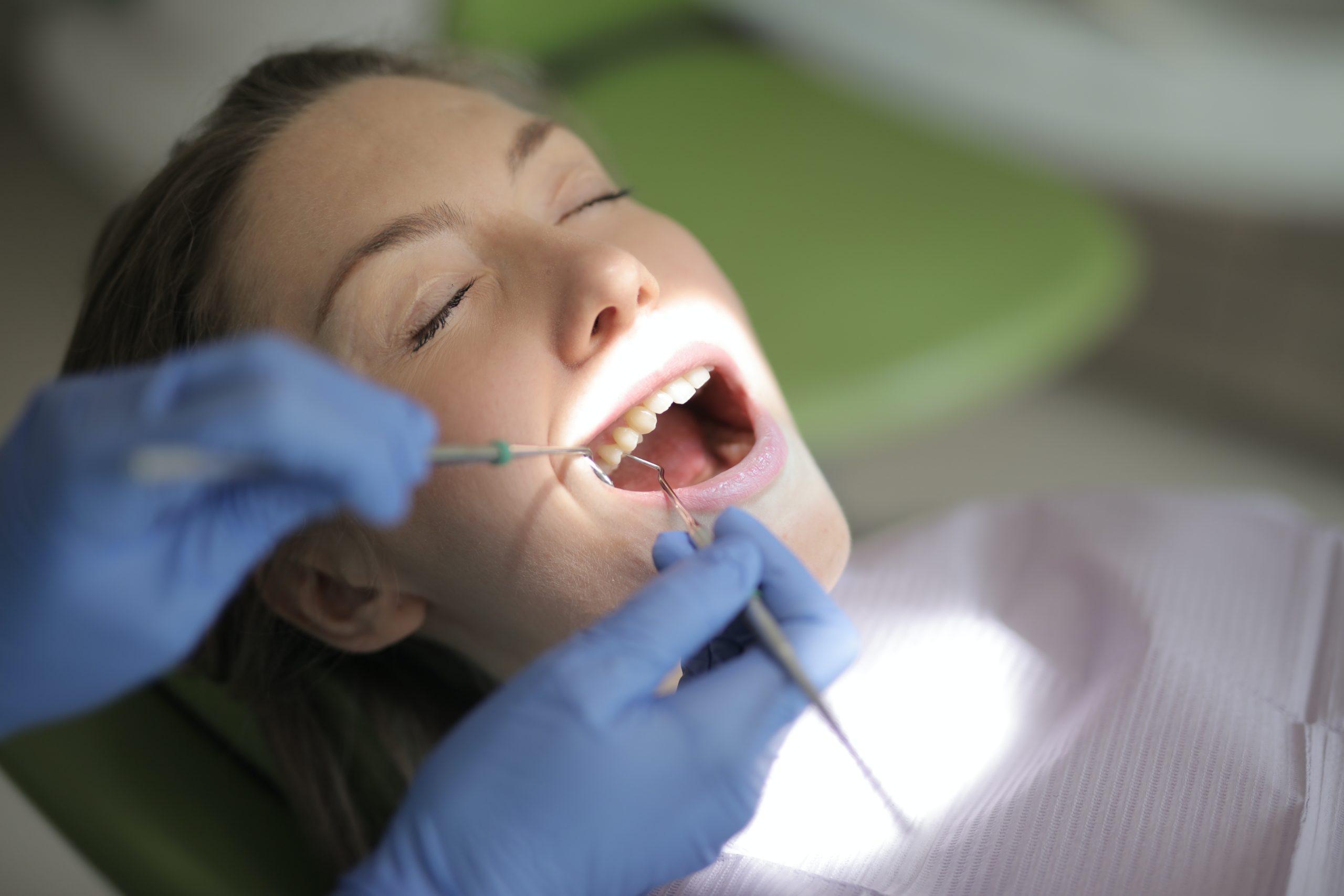As we eat and drink throughout the day, a film of bacteria builds up on our teeth. Plaque causes tartar formation, which combines with bacteria to form a hard substance that adheres to your teeth. This buildup can cause gingivitis, periodontitis, and eventually tooth loss. Of course, that’s why you brush your teeth every day, but sometimes regular brushing is not enough.
Dental deep cleaning is a procedure to dig in and scrub off the buildup that a toothbrush can’t reach.
What is deep teeth cleaning?
Deep teeth cleaning is a type of dental cleaning also called scaling and planing that removes tartar, plaque, and bacteria from your teeth. The procedure involves specialized tools and is a much more thorough process than a regular teeth cleaning. It’s the difference between a full, multipoint auto inspection and a 15-minute oil change: Deep cleaning really looks at everything for a comprehensive treatment.
The dentist will use a tool called an ultrasonic scaler to remove tartar from your teeth and may also use other tools to polish away any rough patches that remain, making them look whiter and cleaner. This process of removing tartar is called scaling.
The next step of the dental deep cleaning procedure is called planing. The dentist will smooth out the tooth root by removing any buildup. It’s easier for the gums to attach to a clean, exposed tooth root, so this process strengthens your gum line and decreases the risk of tooth loss. Because it combines these processes, deep cleaning is often called scaling and root planing.
Do I really need deep cleaning, or is a regular checkup enough?
Your dentist will be able to tell if you need a deep cleaning by looking at your teeth. At the Dental Health Group, we find that many of our Los Angeles area patients who have trouble brushing regularly or who have not been to the dentist in over a year are good candidates for deep cleaning.
Your dentist will check for any discoloration or dark spots on the surface of your teeth, which can indicate plaque build-up below the gums due to oral hygiene. If this is present, they will recommend that you have the dental deep cleaning procedure as soon as possible. Your dentist will also check for any signs of tooth decay, gum disease, or bone loss.
If you have any tooth sensitivity or pain when eating, this could be a sign of gum disease. If your gums are red or swollen, it could also mean that they are infected and in need of treatment. If there are any problems, your dentist may recommend additional treatment before deep cleaning your teeth so that they are in the best possible condition afterward.
What are the benefits of deep teeth cleaning?

Having your teeth deep cleaned regularly can help to keep them healthy and free from plaque build-up. It can also prevent gum disease by removing tartar from the surfaces of your teeth, which helps to stop bacteria from growing there. If you have sensitive teeth or are prone to cavities, a dental deep cleaning procedure may be able to reduce these symptoms, too. Other benefits of teeth deep cleaning include:
- Reduced tooth sensitivity
- Improved overall oral health
- Fresh breath
- A whiter smile
- Healthier gums
Does deep cleaning my teeth hurt?
Because the dentist will numb the area, dental deep cleaning is a relatively painless procedure. If you have sensitive teeth, it may feel slightly uncomfortable when your dentist uses an ultrasonic scaler to remove plaque from your teeth. This device uses high-frequency vibrations to break down hard deposits such as tartar.
At the Dental Health Group, we use the latest technology for safe, efficient treatment. Ask Dr. Abad about numbing options before the procedure begins, and we will make every effort to ensure your comfort.
Remember, the long-term effects of not caring for your teeth often hurt far more than an occasional cleaning.
How long does it take?
The procedure is quick. Depending on how many teeth are treated during the session, teeth deep cleaning can take anywhere from 20 minutes to an hour, usually taking just a few minutes per tooth. If you’re receiving scaling and planing for the first time, it may take longer.
Your dentist will also need to take digital X-rays of your teeth before treatment begins so they can see if any additional work needs to be done before scaling and polishing. Dentists may spend more time on patients who have particularly damaged teeth and gums. Your dentist will advise you on how long each stage of the treatment will take. They’ll also be able to give you an idea of any possible side effects and how long they might last.
What happens during the procedure?
Your dentist will start by preparing your teeth for the procedure by cleaning your teeth using soft bristles and a fluoride-containing solution. They may numb your gums before they perform any treatment. They’ll then use an ultrasonic scaler to remove plaque from the surface of your teeth. This is done with a special handpiece that vibrates at high speed. Next, they’ll polish each tooth using a fine-grit disc that contains fluoride and polishing agents. The whole process is relatively painless, but you may experience some mild discomfort. If there are any visible holes in your teeth (known as caries), then they’ll fill these before polishing them with a fine abrasive paste.
How much does it cost?
The cost of a dental deep cleaning procedure can vary depending on the severity of your case. Most insurance plans will cover some or all of the costs associated with this treatment. In general, though, it’s less expensive than other types of dental care such as fillings or crowns.
What happens afterward?
You should try not to eat or drink anything for at least 30 minutes after your appointment. You might experience some discomfort or pain after your deep teeth cleaning. This is normal, but it should only last a short time. If you have any concerns about this, speak to your dentist before leaving the practice. After your deep teeth cleaning, your gums may be red and swollen for a few hours. They shouldn’t hurt, though, and usually return to normal within 24 hours. If you experience any pain or swelling after the procedure, contact your dentist immediately. After your teeth cleaning, your dentist will probably recommend rinsing with a fluoride mouthwash and using an antibacterial toothpaste for one week. If you have sensitive teeth, your dentist may advise you to use a special toothpaste for several days after the cleaning. This will help soothe any discomfort and reduce the risk of bleeding. You may also be advised to avoid eating certain foods for a few days after your appointment.
Get your smile back!
Deep teeth cleaning is more than just routine teeth cleaning. It is necessary to maintain your oral health. If you’re not sure whether you are a candidate for a deep dental cleaning procedure, reach out to our Canoga Park team to schedule a consultation. At the Dental Health Group, we are passionate about providing you with the best dental care possible to help you maintain good oral health and keep your teeth looking their best. We take pride in our individualized approach to patient care.
We’re ready when you are, so call our Canoga Park office at 818-718-2000 or fill out our contact form to schedule your appointment with us.




